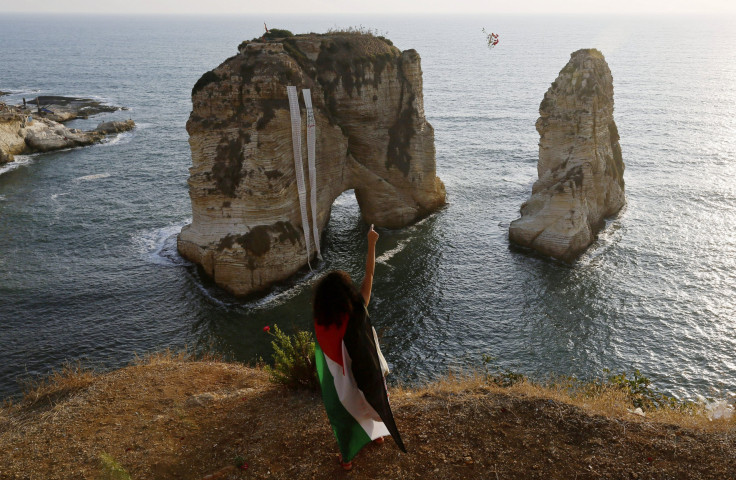Israeli Civil Society Groups Push For Gaza Withdrawal, Make Little Headway

In the last seven years, the Israeli military has fought militants in Gaza three times. The latest, and current, conflict is taking place against the familiar backdrop of a polarized Israeli society and world opinion, divided between hardliners who support a tough stance on the radical Muslim movement Hamas in power in Gaza, and those who want to end the intervention.
Several Israeli civil society organizations are advocating for an end to the invasion of Gaza that began last week. They are part of a number of Israeli groups advocating for Palestinian causes, but those groups say they have yet to make any real impact in domestic politics.
According to the Israel's Institute for Democracy's May 2014 Peace Index, 60 percent of the nation's Jewish public disagrees with the claim that given the failure to reach understandings with Palestinians, Israel should unilaterally withdraw from extensive parts of the West Bank -- the other component, beside the Gaza Strip, of the Palestinian Territories -- so as to scale back its rule over the Palestinian population.
Yehoshua Oz, internal communications director at Israel's Institute for Democracy, said the numbers have "not really changed" since the group began conducting the survey in 1995.
The data from the report supports some of the backlash Breaking the Silence and other groups like it have experienced over the past several weeks. Just a few days ago, a group of Israeli artists were attacked for holding a protest in Tel Aviv against the invasion of Gaza.
One of those groups is Breaking the Silence, which puts together former Israel Defense Forces (IDF) soldiers who served during the Second Intifada (from 2000 to 2005) and want to “expose the Israeli public to the reality of everyday life in the Occupied Territories,” according to its website. The group and like-minded people are "still the minority," Yehuda Shaul, a member and co-director of Breaking the Silence, said.
Other organizations include the Israeli Committee Against Housing Demolitions, a group that advocates for the end to forced evacuation of Palestinians from their homes, and Gush Shalom, a group of Israelis that work to influence Israeli public opinion and lead it towards peace and conciliation with the Palestinian people.
“Just as Israel was established for the Jewish people and gave refuge to them from European and Arab states, so a Palestinian state is the homeland of the Palestinian people, those who live in the territories and those who left in 1948 and are being kept as political cards in refugee camps,” she said in a 2007 New York Times magazine article. “This is the national answer. The solution for Palestinians is the Palestinian state. Israel is not part of the solution.”
But now, activists on the ground say there is no one who would readily come out and say what Livni said in 2007.
“Room for alternative voices is really low. I think we are in dark days. We are in a place where it is very violent and aggressive and not tolerant,” Shaul said.
Part of the problem, he said, is the widening gap between civil society and politics in Israel. “Big politics is completely disconnected from the ground,” he said.
"In the media there are very few voices that are putting question marks on what is going on today,” Shaul added.
“The politicians that send us to perform these tasks don’t even pretend to promise hope for a better future. Just further use of force and violence,” wrote Avner Gvaryahu, a member of Breaking the Silence, in an opinion piece for the Independent.
Breaking the Silence, as well as other entities such as Tikkun magazine, have called for an end to the invasion of Gaza, and the need for a new Israeli approach to the conflict. Rabbi Michael Lerner, editor of Tikkun, wrote an opinion piece in the Huffington Post last week, demanding Israel “end the invasion, stop its bombing of Gaza, free the Palestinians it has arrested in the past years, and abandon its insane policy of seeking security through domination.” Instead, he wrote, Israel needs a “generosity strategy” that would allow for a Palestinian state in the West Bank and the release of prisoners.
"We aren't saying that Israel has no right to fight terrorism," Shaul said. "The problem is ... we become more aggressive without debating anything. We shouldn't get used to doing wrong. Maybe we should try and recalculate our pathway and look for other ways."
© Copyright IBTimes 2024. All rights reserved.





















